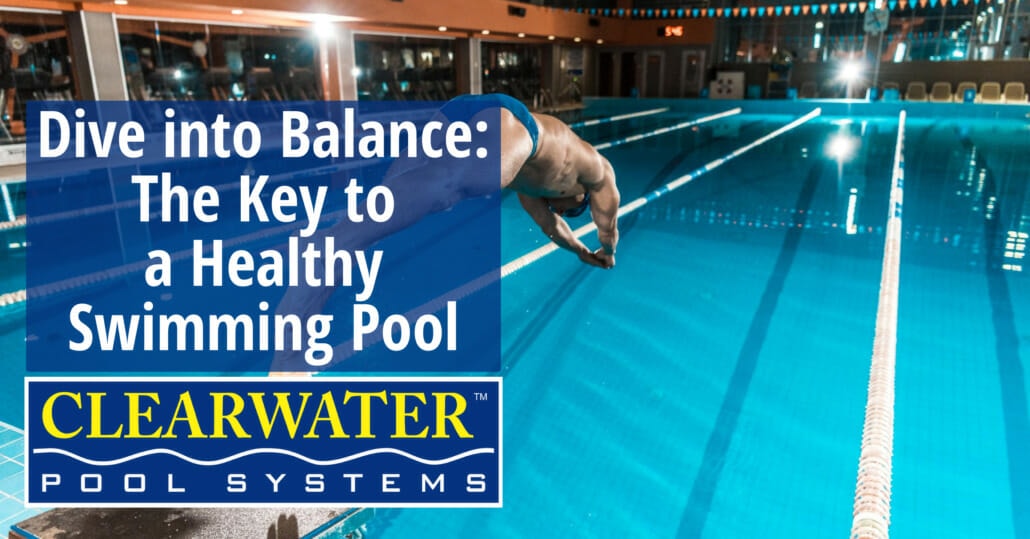Dive into Balance: The Key to a Healthy Swimming Pool

A swimming pool is one of the most popular outdoor additions to any home. It’s a great way to beat the heat during the summer months, entertain guests, and even get in a little exercise. However, keeping a swimming pool healthy and safe can be a challenge. The key to a successful pool maintenance routine is pool water balance. When pool water balance is off, it can cause skin irritation, damage pool equipment, and contribute to algae growth. Our next series of articles will discuss the importance of pool water balance, how to maintain pool pH control and balance total alkalinity, and the benefits of doing so. So, if you’re ready to dive into the world of pool maintenance, let’s get started!
Maintaining pool water balance is crucial for both the health and enjoyment of swimmers. Good pool pH control and being able to balance total alkalinity is important to helping ensure the water is clean, clear, and safe for swimming, while also prolonging the lifespan of the pool equipment and surfaces.
One of the most important aspects of pool water balance is maintaining proper water chemistry. This involves monitoring and adjusting the pool’s pH level, total alkalinity, and calcium hardness. When these levels are out of balance, it can lead to various problems such as cloudy water, algae growth, scale buildup, and even skin and eye irritation for swimmers.
Maintaining pool pH control is essential as it affects the effectiveness of chlorine in sanitizing the water. A pH level that is too high or too low can lead to chlorine becoming less effective, resulting in inadequate disinfection of the pool water. Additionally, poor pH control can cause scaling and/or corrosion of pool equipment and surfaces.
Total alkalinity acts as a buffer for the pH level, helping to stabilize it and prevent rapid fluctuations. Being able to balance total alkalinity ensures that the pH level remains within the recommended range, providing a comfortable swimming environment.
Calcium hardness refers to the amount of dissolved calcium in the pool water. If the calcium hardness is too low, it can lead to the water becoming aggressive and causing corrosion of metal components. On the other hand, high calcium hardness levels can cause scale buildup on pool surfaces, equipment, and plumbing.
Regularly testing the water and making necessary adjustments to maintain proper pool water balance is essential. This can be done using test kits or by taking water samples to a pool supply store for analysis. In addition to water chemistry, other factors such as filtration, circulation, and regular cleaning also play a role in maintaining pool water balance.
Our next article will dig deeper into the chemistry behind pool water balance.
Clearwater Pool Systems is an ecofriendly, chemical-free method to help you achieve pool water balance, balance total alkalinity, and maintain pool pH control. The comprehensive system is composed of three components: pHPure™ – a CO2 injection for pools, MineralPURE® – a pool ionization system, OzoneMAX™ – an ultraviolet ozone system. We invite you to explore our website to learn more about how Clearwater Pool Systems can benefit you. Homeowners can order residential models online at Home Depot. Commercial pool operators can contact the nearest authorized dealer or e-mail us at sales@clearwaterenviro.com.








